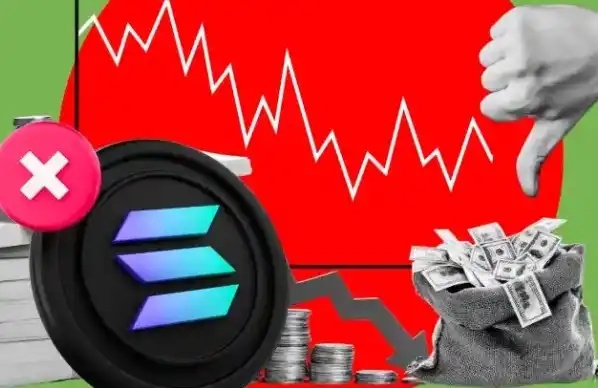「ETH Price Boost」 Stumbles Again: SEC Delays Approval of Staking ETF, Pectra Upgrade Faces Further Delay
Original Article Title: "SEC Delays Ethereum Spot ETF Pledge, 'ETH Bullish Thesis Vanishes' Fastest Rebound May Require Until June"
Original Article Author: 0xJigglypuff, BlockTempo of DooWooDooWoo
The U.S. Securities and Exchange Commission (SEC) yesterday (14th) addressed multiple applications, allowing cryptocurrency exchange-traded funds (ETFs) to engage in Ethereum (ETH) staking and in-kind purchase and redemption rule changes. SEC decided to delay, seeking more time for evaluation. Multiple decisions originally scheduled for mid-April have been postponed to early June this year.
Impact Scope
SEC Assistant Secretary Sherry R. Haywood wrote in the VanEck crypto ETF document. This indicates that the regulatory agency still holds a highly cautious attitude towards these innovative mechanisms involving cryptocurrency derivative financial products.
The committee believes that designating a longer period to act on the proposed rule change is appropriate to ensure there is enough time to consider the rule change and the issues it raises.
Most notably affected are two Ethereum-related investment products under Grayscale: the Grayscale Ethereum Trust ETF and the Grayscale Ethereum Mini Trust ETF.
On February 14th, the New York Stock Exchange Arca (NYSE Arca) submitted rule change applications for these two trusts, hoping to allow them to stake the Ethereum they hold to earn additional income for investors. The original decision was expected on April 17th, but is now postponed to June 1st.
Rule changes for VanEck's Bitcoin Trust (VanEck Bitcoin Trust, trading symbol HODL) and VanEck's Ethereum Trust submitted by the Chicago Options Exchange BZX (Cboe BZX) have also experienced delays. The applications aim to allow these ETFs to adopt an "in-kind purchase and redemption" mechanism. The SEC was originally due to make a decision by April 19th, but this has now been delayed to June 3rd.
In addition, the decision on the physical issuance and redemption mechanism of the WisdomTree Bitcoin Fund has also been delayed until June 3.
Why is Staking and Physical Redemption Key?
“Staking” is a core feature of Proof of Stake (PoS) used by Ethereum, where holders can lock up their tokens to participate in block validation and receive rewards. If a Bitcoin spot ETF were to incorporate staking, it would mean that staking rewards could be distributed to investors, making an interest-bearing ETF very attractive to investors.
However, the introduction of staking has also brought about more complex regulatory issues, such as the nature of staking rewards, risk disclosures, and ETF structure impacts, which the SEC needs more time to carefully evaluate.
“Physical creation and redemption” is a common operation mode in the ETF market, especially since the approval of a significant number of U.S. Bitcoin spot ETFs earlier this year. The importance of this mechanism has been further emphasized in the market. Compared to the more prevalent cash create/redeem process, physical creation and redemption allow Authorized Participants (APs) to directly exchange Bitcoin or Ethereum for ETF shares or vice versa.
This model is generally considered more efficient, with lower trading costs, reduced tracking errors, and a more competitive market structure. However, for highly volatile cryptocurrencies, the process of physical delivery, custody risks, and potential impact on market liquidity are aspects that the SEC must carefully consider.
Market Expectations for Ethereum Upside Disappointed
The market was initially highly anticipating an Ethereum spot ETF with staking functionality. However, even in the era of Trump, faced with the complexity of cryptocurrency securitization, authorities have chosen to take a more cautious approach to uncertainty. Compared to the situation in January when multiple Bitcoin spot ETFs were approved, market expectations for a rally from an Ethereum spot ETF have significantly cooled.
The main reasons may lie in whether Ethereum's mechanism may be classified as a security and the complexity of staking and regulation due to the PoS mechanism.
From the market's expectation of Ethereum having staking functionality in early February to date, the price of Ethereum has halved. The initial optimism may have been clouded by market expectations of spot ETFs impacting the market, and the recent pessimism reflects the disappointment of those expectations. To expect a return to February prices and market conditions, both spot ETF staking and Ethereum's reform are likely essential.
Compared to the uncertain regulation, Ethereum has recently undergone foundation reforms and the Pectra upgrade, which is currently scheduled to go live on 5/7, with the possibility of further delays. Taking everything into consideration, Ethereum may have to wait until close to June, or until there is a change in the overall economy, before any significant signs of a rebound may appear.
Welcome to join the official BlockBeats community:
Telegram Subscription Group: https://t.me/theblockbeats
Telegram Discussion Group: https://t.me/BlockBeats_App
Official Twitter Account: https://twitter.com/BlockBeatsAsia
 Forum
Forum OPRR
OPRR Finance
Finance
 Specials
Specials
 On-chain Eco
On-chain Eco
 Entry
Entry
 Podcasts
Podcasts
 Data
Data


 Summarized by AI
Summarized by AI







